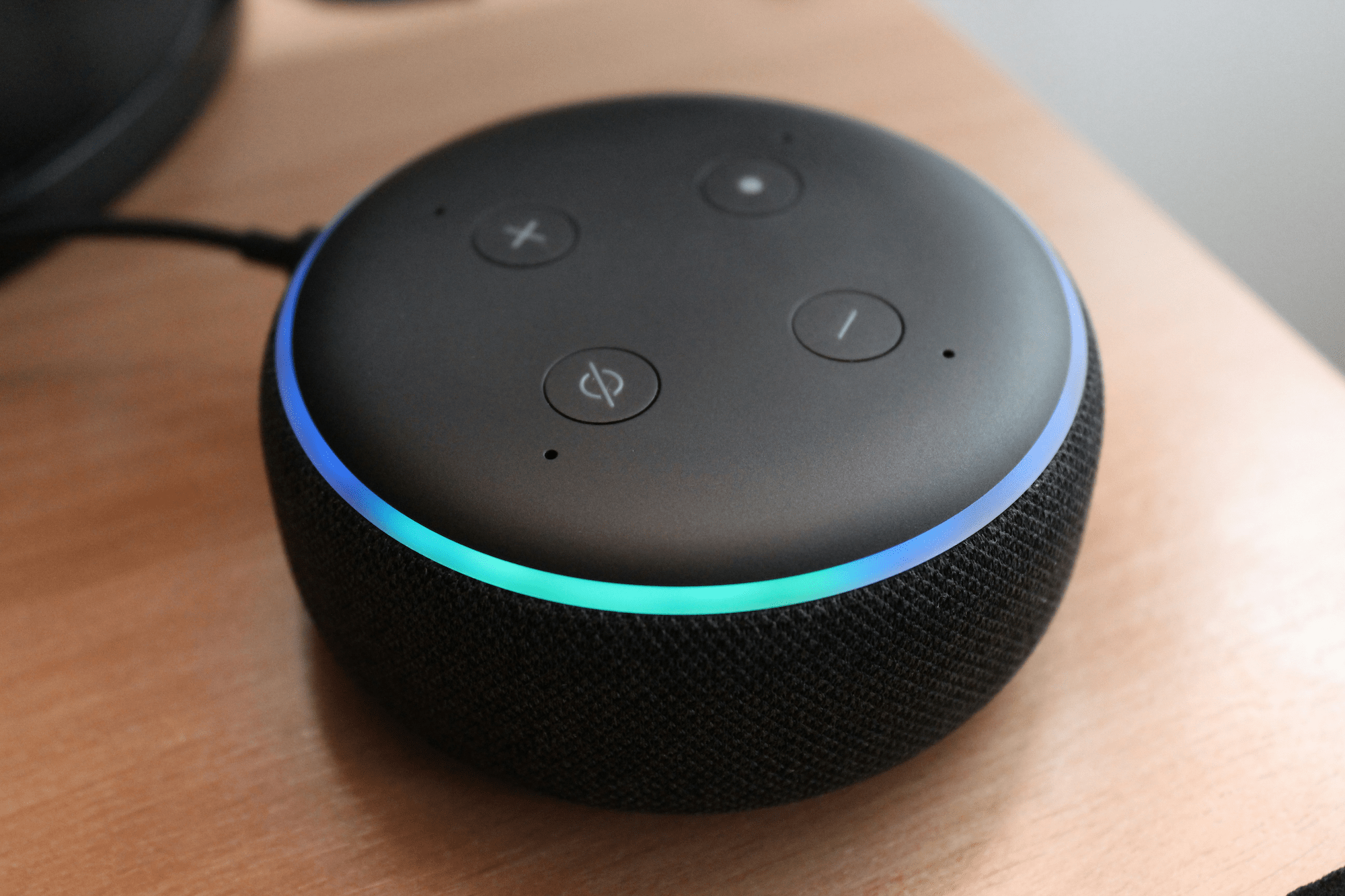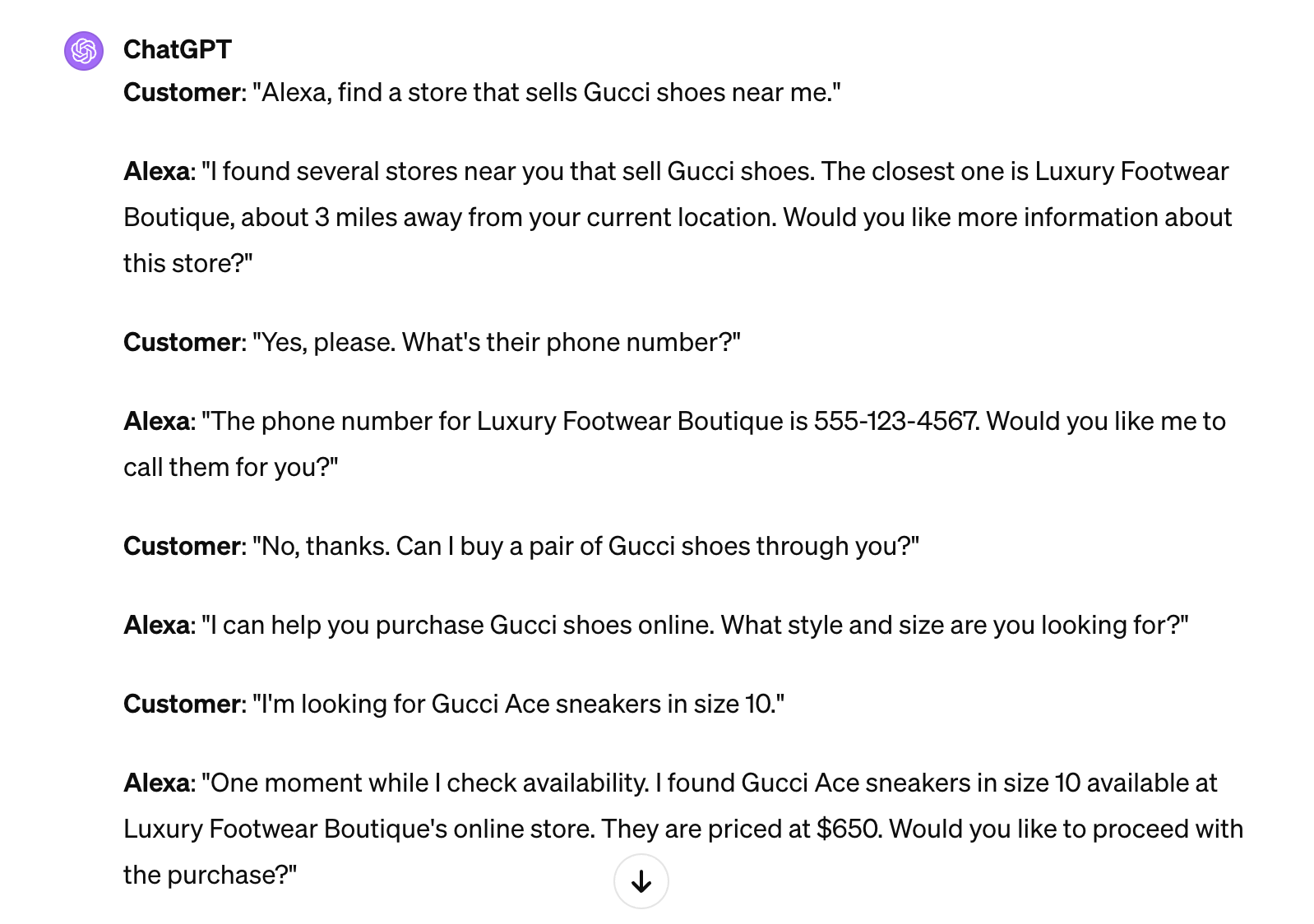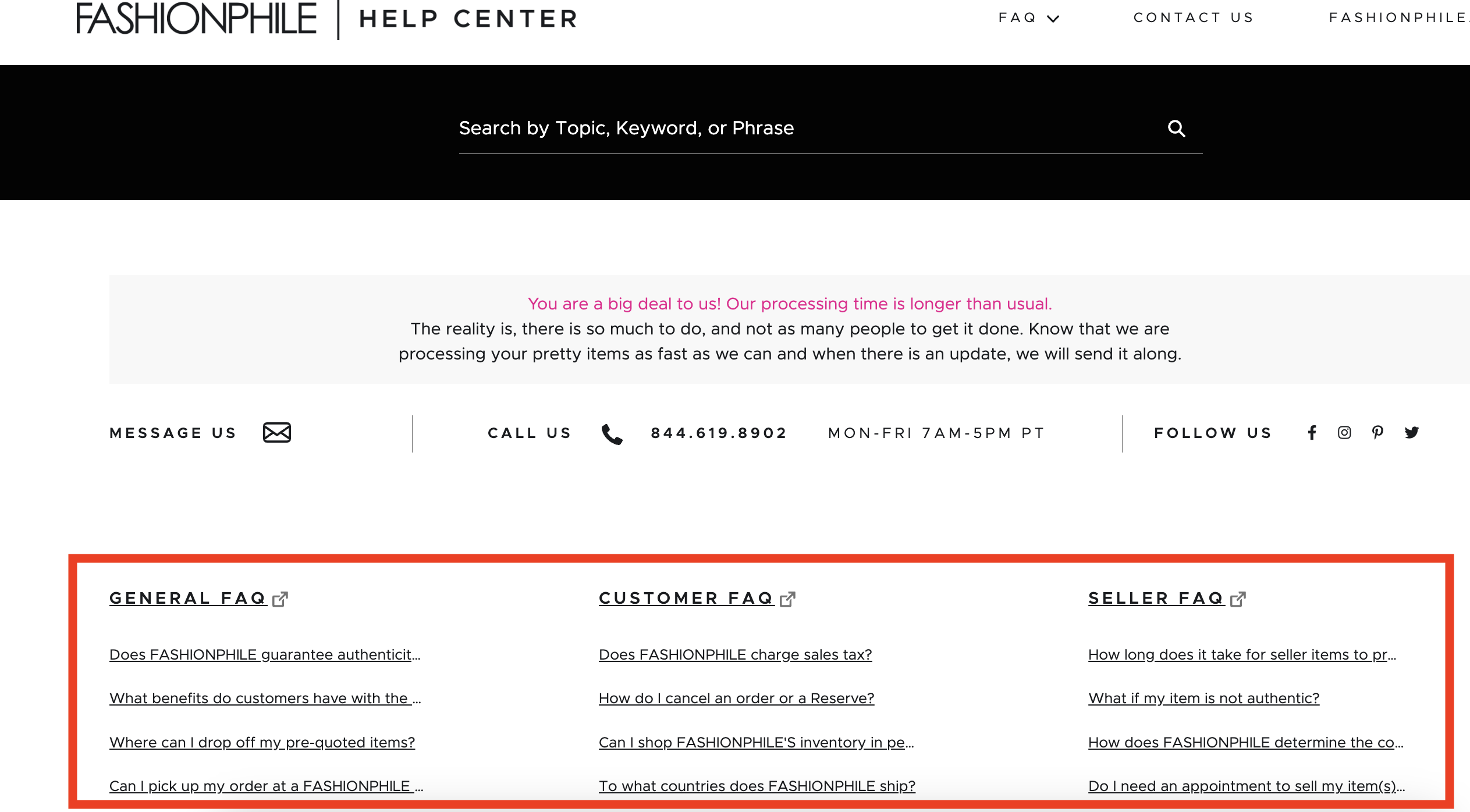
Dropshipping
40 Best Dropshipping Clothing Suppliers in 2025
As a newcomer in the dropshipping clothing market, you might find yourself pondering whether the dropshipping clothing niche is truly...
What is Voice Commerce and How It Will Benefit Your Dropshipping Store?
Dropshipping
+1

Gone are the days when we solely relied on keyboards and screens—now we can simply tell a device what we need, and it takes care of the rest.
Voice commerce is the new frontier where shopping meets technology like never before. And if you're in the dropshipping industry and own an online business, it's time to perk up your ears.
Voice commerce is streamlining the way people shop, offering convenience, speed, and a personalized shopping journey, making it a valuable tool for dropshipping stores looking to enhance customer service.
In the U.S. alone, in 2022 have been registered over 140 million voice assistant users, a number expected to surpass 157 million in 2026 (Statista).
Out of those users, it appears that up to 60% of online shoppers have been making eCommerce purchases through voice search daily or weekly (OnlineDasher).
That being said, today, we'll look at:
Ready? Let's get started!
Voice commerce is a rapidly evolving shopping method that allows consumers to make purchases using voice commands through smart devices, like smartphones and voice assistants such as Amazon Alexa, Google Assistant, and Apple Siri.
Shoppers can simply speak to their devices to search for products, add items to their shopping carts, and make purchases without ever needing to touch a screen.
For example, a user can tell their smart speaker, “Order another pair of jeans from the last store I shopped from,” and the device will process this request by placing an order based on the user’s previous shopping behavior.
As already mentioned, voice commerce operates by using voice recognition technology like popular voice assistants such as Google Assistant and Amazon’s Alexa.
These enable customers to conduct transactions using voice commands through smart devices like phones, speakers, and virtual assistants.
Here’s how it unfolds:
Check out: eCommerce vs retail
To give you an even clearer picture, we asked ChatGPT to generate a similar conversation:
Prompt:
Generate a conversation of a customer trying to find a store that sells Gucci shoes and purchase a pair through its voice assistant Alexa.
Answer:

Check out: How to use ChatGPT for customer support?
Voice commerce brings a range of advantages to dropshipping businesses, allowing them to adapt to the evolving ways consumers prefer to shop.
Here are five key benefits:
Voice commerce might sound like a dream come true for many, but it’s not without its bumps in the road.
Optimizing your dropshipping store for voice command involves understanding how people use voice search and what they expect from it.
Here are 7 ways to make sure your dropshipping store is ready for voice command shopping:
First things first, remember that people don’t type and speak in the same way. When using voice commands, people tend to use natural language.
To optimize your product listings for voice search, use keywords that reflect how people speak.
It’s unlikely that your customers would ask their voice assistants something along the lines “Show me blue men’s jeans size 32 online store.” Instead, they’d say something like “Find me online stores that sell blue jeans in size 32.”
Start by tweaking your product descriptions and content to sound more natural and conversational. Use phrases and questions real people would ask about your items.
Here’s a quick tip: Try to answer the who, what, where, when, why, and how questions that customers might have about your products. This not only helps with voice search optimization but also improves overall SEO ranking.
Think about the long-tail keywords that sound like real-life fashion advice questions.
Instead of “men’s blue jeans,” try incorporating the keywords “comfy men’s blue jeans for everyday wear.”
Use tools to find out what people are actually asking their voice assistants and incorporate those questions and answers into your product descriptions, blog posts, and even titles.
Check out: Best Amazon and eBay keyword tools

An FAQ page that addresses common questions in a conversational tone can significantly boost your dropshipping store’s voice search friendliness.
Create a section on your site where you answer all the potential questions a shopper might ask their voice assistant.
Cover the basics like sizes, colors, and shipping info, but also dive into style advice, like “What accessories go best with a summer dress?” or “How do I style bootcut jeans?”
This page becomes a goldmine for voice search optimization, directly matching the queries people are likely to ask their voice assistants.

Optimizing for featured snippets is like setting up your store’s billboard in the busiest part of the internet highway.
Featured snippets are those little boxes of info that pop up at the top of search results – they’re Google’s way of saying, “Hey, this is exactly what you’re looking for.”
And so, naturally, voice assistants are more likely to provide shoppers with information from the search results that rank the highest.
If your store’s content nails those snippets, you’re not just answering their questions; you’re leading them directly to your dropshipping store.
Since a lot of voice searches happen on those handy devices we carry around all day, ensuring your dropshipping store is mobile-friendly is crucial.
Optimize images, streamline your design, and test your site’s mobile performance regularly.
Plus, make sure navigating your store on a phone is easy. Simply-named and well-organized product categories can guide your voice-searching customers right where they want to go.
Structured data helps search engines understand the content of your website, making it easier for your store to appear in voice search results.
When someone uses voice search to shop, they’re usually looking for something specific. “Hey, find me a floral summer dress under $50,” they might say.
If your website is structured well, with clear categories like ‘Dresses,’ ‘Summer Collection,’ or ‘Season Sales’, voice assistants can easily crawl through your site and serve up exactly what your customer wants.
Having a site that’s easy to navigate not only makes for a happy customer but also signals to search engines that you’re providing a good user experience.

Voice commerce is convenient, fast, and hands-free, which is perfect for your customers’ busy, multitasking lives.
Plus, as voice recognition technology gets sharper, these virtual shopping assistants are only going to get better at understanding us, making recommendations, and even anticipating our needs.
For dropshipping stores, this means an exciting opportunity to connect with customers in a whole new way.
So, yes, voice commerce is the future, and it’s a future that’s already begun.
Make sure your store is part of this exciting journey.
Voice commerce refers to when a customer uses a voice assistant like Alexa or Google Assistant to order products online.
Voice commerce offers convenience, speed, and a hands-free shopping experience, making it ideal for multitasking. It also provides personalized shopping through AI, leading to improved customer satisfaction.
As of Statista’s latest update, there are 142 million users of voice assistants in the U.S. This number is expected to grow as voice recognition technology becomes more integrated into our daily lives and shopping habits.
What is dropshipping?